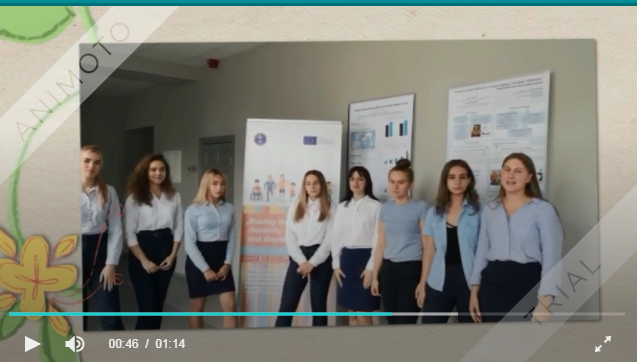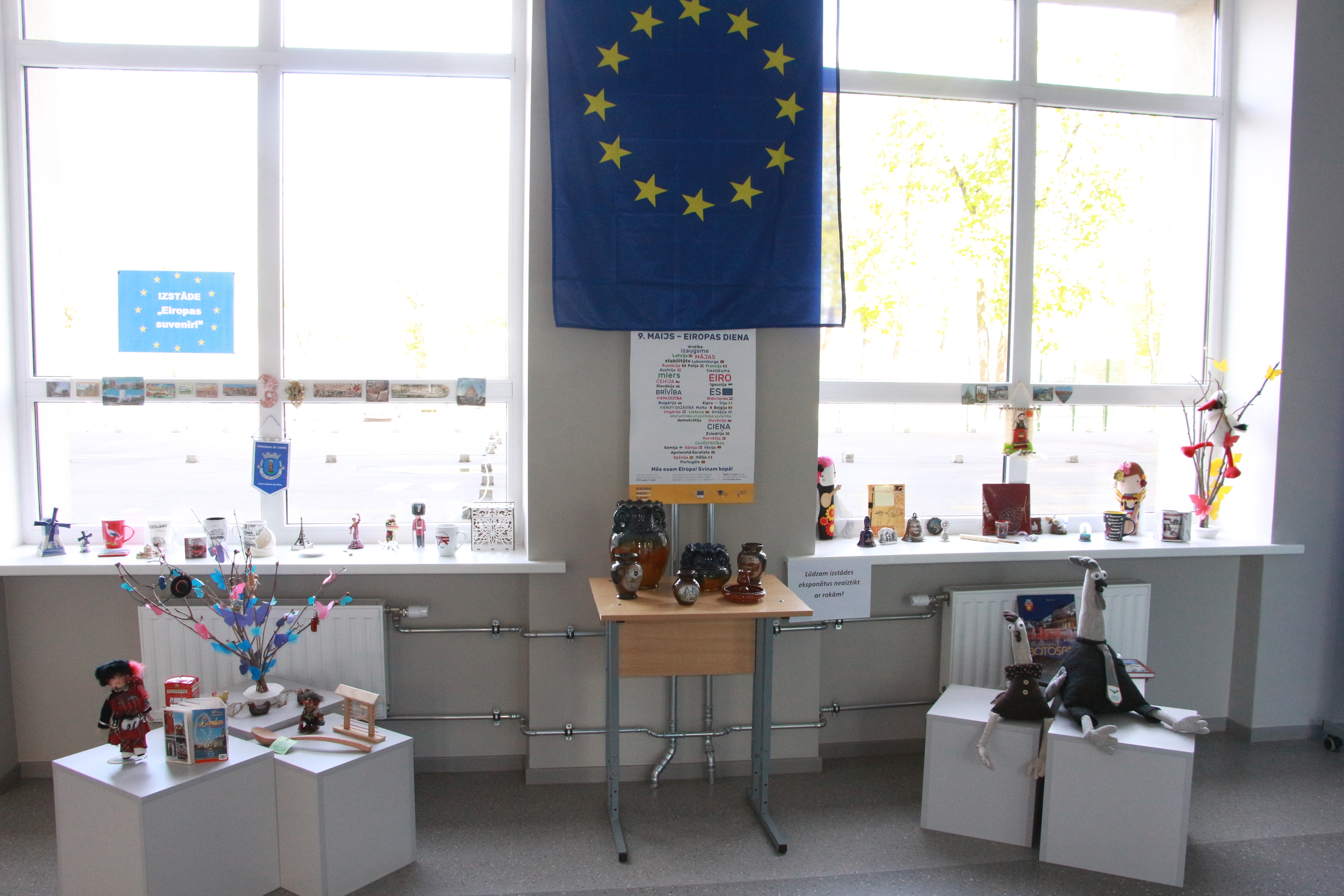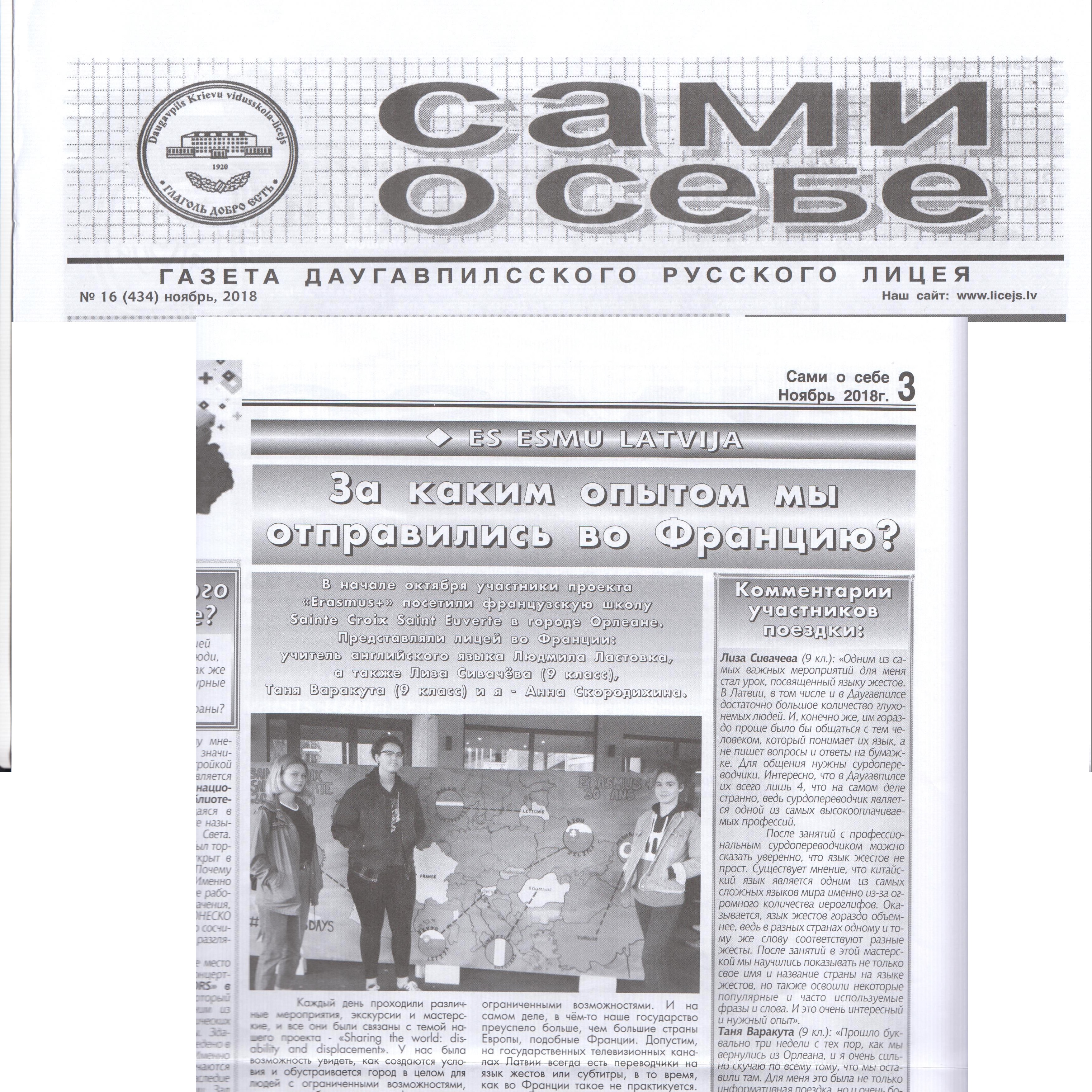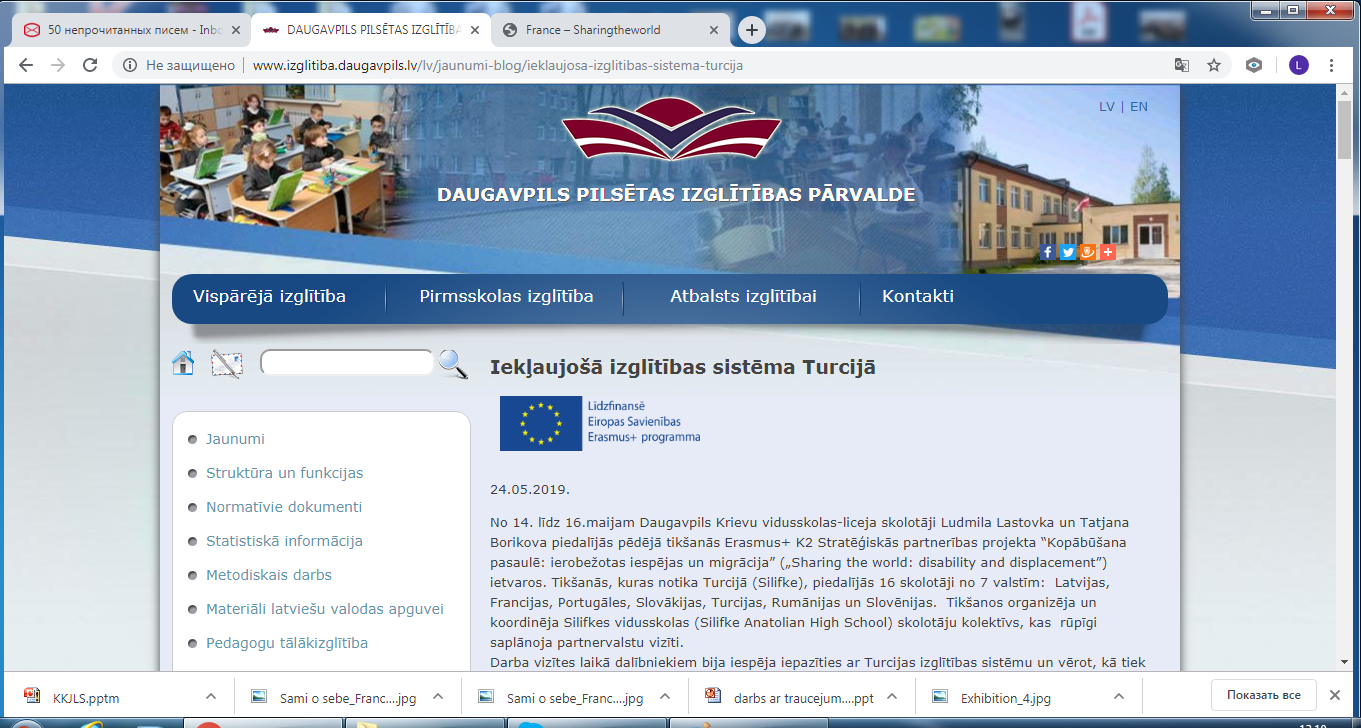 |
 |
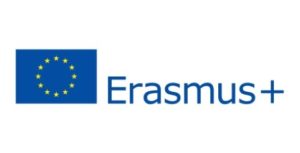 |
SHARING THE WORLD* : Disability and Displacement 2017 – 2019
*this project is financed by the European Union
REFUGEE LOOKING FOR A JOB
COUNTRY of DESTINATION : LATVIA
GENERAL INFORMATION
Number of refugees present in the country :
- Nowadays in Latvia have 374 registered refugees out of 531.
Nationalities/ethnic groups present in the country (in percentage) :
- According to the centus of population in 2011 Latvians make up 62,1% of the total population, Russians – 26,9%, Belarusians – 3,3%, Ukrainians and Poles – 2,2% (each), Lithuanians – 1,2%, Jewry and Gypsies – 0,3% (each), Germans and Estonians – 0,1% (each) and other – 1,3%
Languages spoken in the country :
Length to get the refugee status :
- Length to get the refugee status may lost from 3 to 6 months.
Attitude towards existing foreign communities/minorities in the country :
- Latvia has specific demographic features relating to the ethnic make-up of its population as well as a specific policy towards national minorities and inter-ethnic relations, with the result that it has been a focus of attention at the Council of Europe since it joined in 1995, but also in other international organisations. 59% of the 2.3 million inhabitants are Latvians and 41% from different ethnic minorities, Russians making up about 28.5% of the whole population. Given this multi-ethnic and multi-cultural character of Latvian society, the establishment of a cohesive society and reliable civic nation raises enormous challenges.
- Latvia is a stable, modern, democratic country which, in the framework of the integration policy put in place several years ago, is moving at its own speed towards the resolution of its problems, some of which – such as the fate of non-citizens – are structural. There are no real inter-community problems. Especially since, now the country has joined the EU, public opinion seems to be focusing more on the economic and social situation than on identity questions.
Access to healthcare : easy / average / complicated / very complicated
- Access to health care a refugee who has received official status has exactly the same as a citizen of Latvia.
THE JOB MARKET:
In what domain we can easily find a job :
- In Latvia, refugees work in industries that do not require knowledge of the Latvian language at such a high level as in other industries, in construction, woodworking and food industries or in the passenger transport industry. In fact, almost all areas except for governmental jobs, such as police, state government, etc.
- Half of the largest companies in Latvia are ready to give work to refugees, and small businesses are much less responsive, according to the results of the survey, conducted by order of the bank “Citadele”.
- The most responsive are large enterprises (from 250 and more employees) – 56% of them are ready to offer work for refugees. Relatively friendly attitude to refugees from the company with a number of 50 to 249 employees- 41% of such enterprises are ready to give work to persons, which need asylum. In the category of enterprises from 10 to 49 employees – 29% of entrepreneurs are ready to accept refugees, and in the group of small enterprises (up to 10 employees) – 14%.
What diplomas are the most required :
A person submits to the information institution:
- an application;
- copy of passport;
- documents approving education and professional rights in profession;
- certificate from competent home institutions on rights to exercise profession;
- certificate on work experience in home state;
- a certificate of good conduct (doctors, nurses, dentists, midwives, pharmacists, architects, veterinary surgeons) not more than 3 months old.
Documents which are not in Latvian should be translated into Latvian. Documents issued outside EU (except Russia, Ukraine, Uzbekistan, Belarus, Kirgyzstan, Moldova) should be legalized in Latvia.
How difficult is the language of the country :
- Refugees learn Latvian very slowly and with difficulty, as they arrived to Latvia from countries whose culture and languages are very different from Latvia.
Can we find a job if we speak English but not the native langage :
- Previously, employers were very careful to hire these people, but, having seen their knowledge and skills, take them to work more often.
INTEGRATION
What is the general attitude towards refugees :
- Stereotypes, distrust, fear and hostility towards outsiders – this is how the attitude of a significant part of Latvian society can be described. The locals do not expect anything good from them either. And with each new terrorist attack, negative news or a state of emergency in the society there is a growing wave of hostility towards refugees. But like it or not, we’re going to have to change our minds.
Are the people in the country welcoming to strangers :
- According to the January survey of the sociological company , 78,3% of residence oppose the reception of refugees. Over the last months in Riga six protests related to the expected arrival of refugees.
Are there any associations/organisations that can help (Red Cross or others) :
- The Red Cross is the only organization in Latvia that has agreed to accept refugees.
Organization “Shelter “safe house”” deals with citizens who already have in Latvia some status.
What is the official attitude of the government about the migrants : welcoming/unwanted
- For some ruling politicians – for example, the nationalist party “national Association” – the question of the reception of refugees and does is one of the Central policy issues around which eventually built negotiations on the formation of a coalition.
- For today, our government has undertook to relocate 776 people (out of 160 thousand), but legally this decision was made against 531 people (481 – from Italy and Greece, plus 50 – from Turkey) – until September next year, we must accept them.
- For now, only 73 people have come to the EU solidarity program – inconspicuous for locals.
- The average number of requests for the EU per million inhabitants is 599. In Latvia, it is 46.
This document was prepared by : Jelizaveta Sivachova, Emiliya Kolesnika, Anna Skorodihina
Resources :
« Rights of national minorities in Latvia » http://assembly.coe.int/nw/xml/XRef/X2H-Xref-ViewHTML.asp?FileID=11490&lang=en#2i


